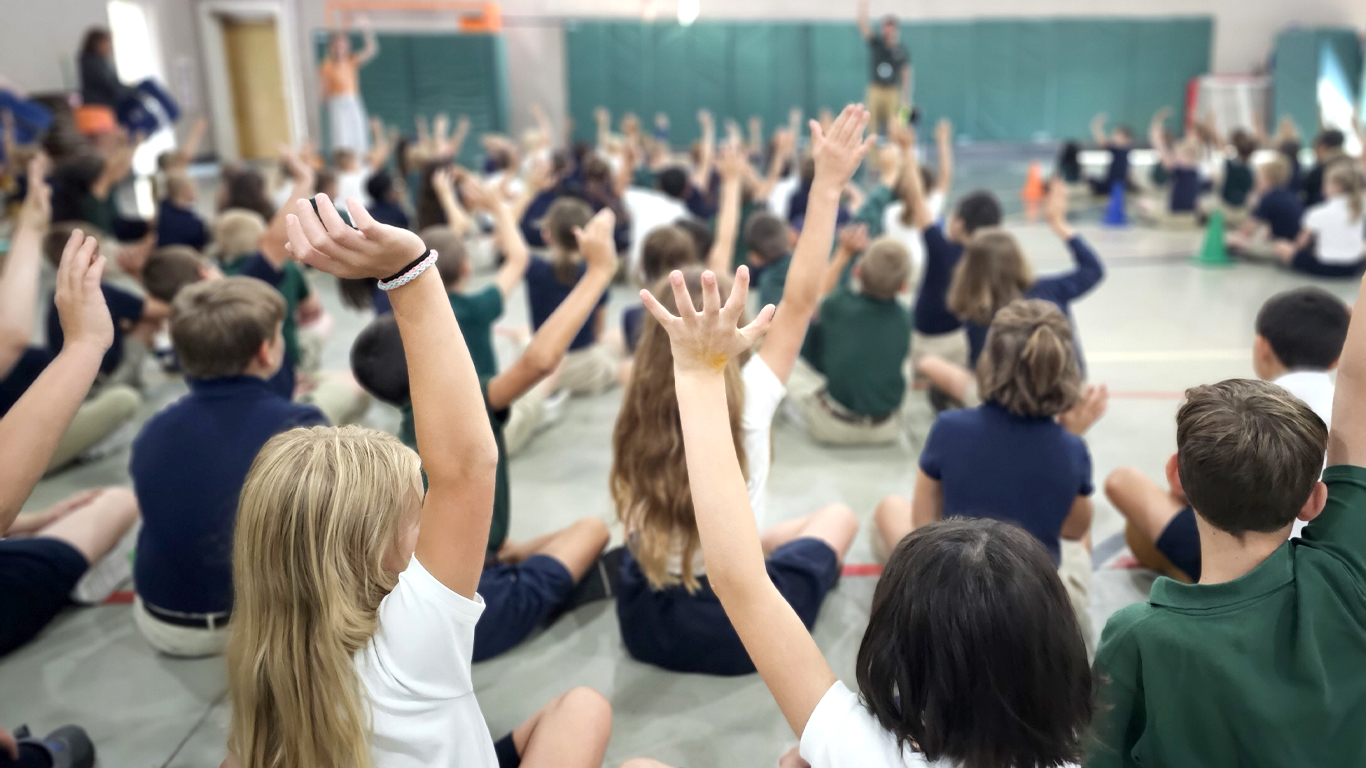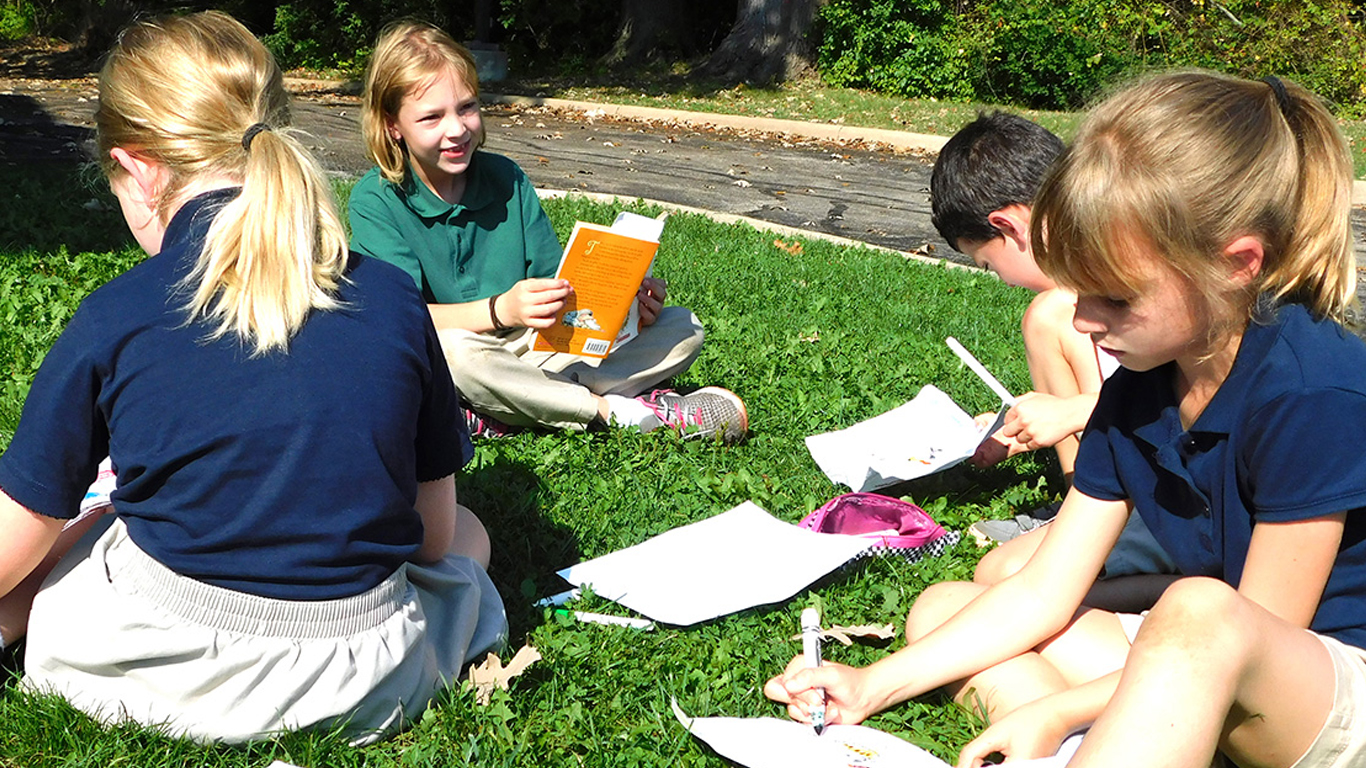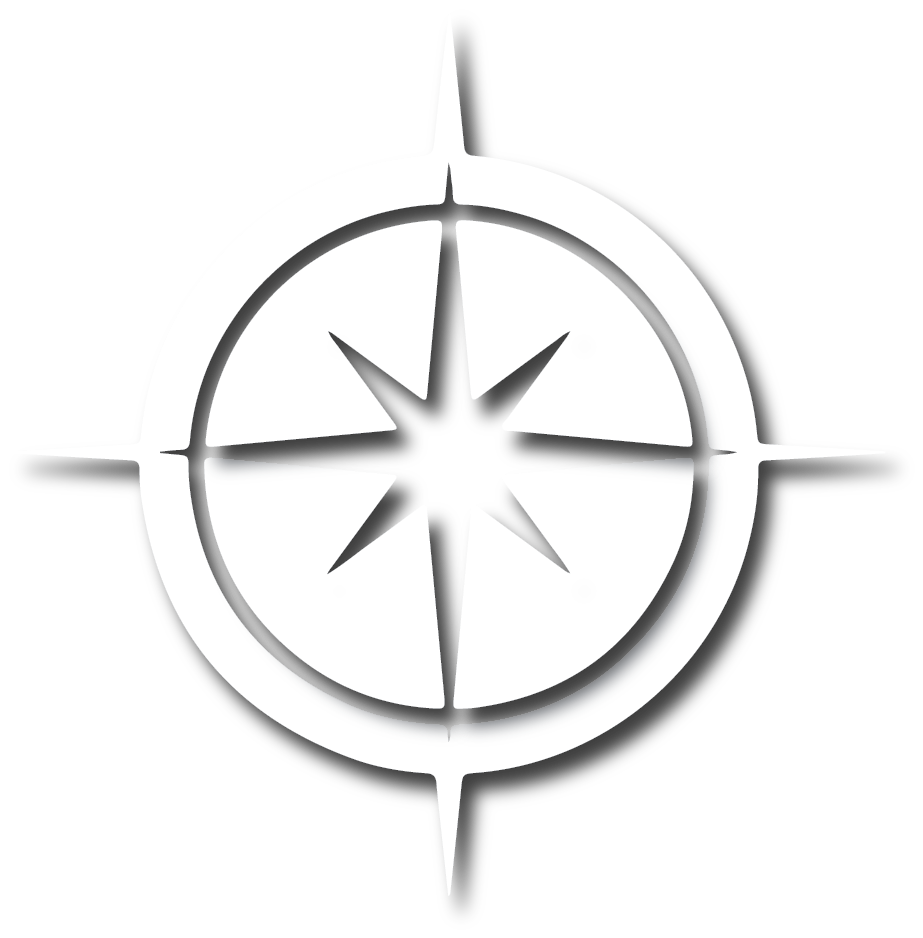I would like to offer you a peek into the Humanities classroom. The detective in Umberto Eco’s mystery novel, The Name of the Rose, William, considers the entire crime scene, a monastery in 14th century Europe, to be a speculum mundi–a microcosm of the world. It features the largest library of books in the known world guarded by two monks, a head librarian and his assistant. In it there are texts from antiquity including, but not limited to Arabic texts, manuscripts on divination, books on theology, history, and philosophy, and one specific text–a one-of-a-kind by Aristotle–that perpetuates the deaths of multiple monks, all of which appear to align with the seven trumpets of Revelation chapters 8, 9, and 10 cuing apocalyptic events.
The library is structured as a labyrinth into which books are systematically shelved, but the system of organizing the texts remains a mystery to all but the precious few who guard them. I would argue that Classical Christian education has a wonderful response to the microcosm of protected and censored knowledge. During one questioning activity, a Humanities student asked, “What should we seek to know, and to what extent should we seek to know it?” First, we know that Deuteronomy 29:29 tells us that “The secret things belong unto the Lord our God: but those things which are revealed belong unto us and to our children forever, that we may do all the words of this law.” The Lord has revealed much to us, and we are to use that knowledge to better understand Him. The world in which we live systematically assigns value to knowledge, yet we, like William, must navigate the contents with caution and purpose, to best seek the Truth. Second, we must discern how to navigate a world that preaches access to all knowledge–no matter how distracting, how dark, or how mindless. As we have read The Name of the Rose, we have begun to examine the concept of knowledge, how we are to acquire it, and to what ends we should use it.
In Humanities, students most certainly learn the plot development of novels and consider the implications of historical events, but most importantly, they THINK. They think about God, His Kingdom, His Word, His Purpose, and His Will. Through the vehicle of primary texts, Humanities students delve into the marketplace of ideas–exploring them, examining them from various angles, looking at their origins and consequences, and most importantly checking to see how they line up with God’s Truth. Colossians 2:8 says, “See to it that no one takes you captive through hollow and deceptive philosophy, which depends on human tradition and the elemental spiritual forces of this world rather than on Christ.” Our Humanities curriculum seeks to provide the knowledge of the philosophies of man so that our students will not be duped by them when they are wrapped up pretty packages or sung to delightful melodies.
Upper school Humanities not only educates the students’ ability to recall facts, but more importantly it tends to their hearts. You see, we may send our sons and daughters to Westside Christian Academy thinking that it is a great place to shelter from the political and moral storm raging in the public sector, that reading the Bible is a nice thing to be able to do, or that the way the teachers love the kids is really important, and those are all great reasons to attend this school; however, I would challenge any parent consider the most important reason we send our kids to WCA–that they may stand one day as men and women who have not fallen prey to the lies that this world tells them, that they would not be devoured by the enemy. I would imagine that we send our children here because we want them to know the Truth of God’s holy, infallible word, stand on it, and measure everything else up against it. Humanities combines history, literature, and Bible, through the use of primary texts instruct our Upper School students to that end: equipping them to measure all that the world has to say–even 14th century monks–and navigate the labyrinth of ideas of this world.







